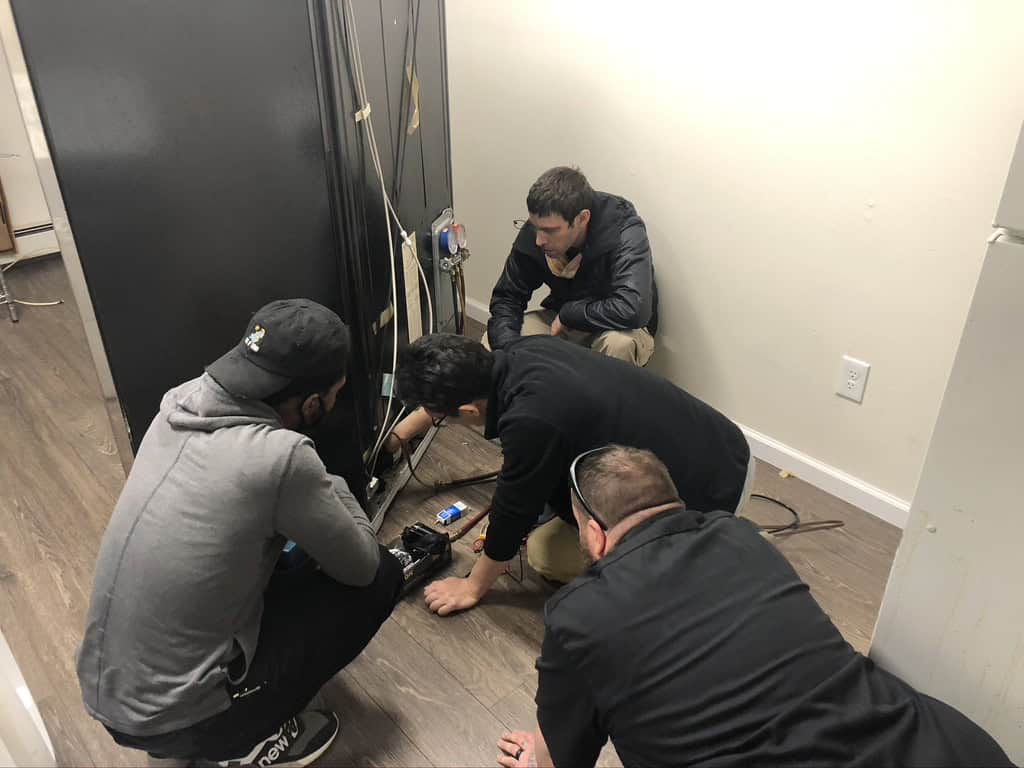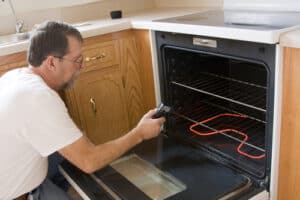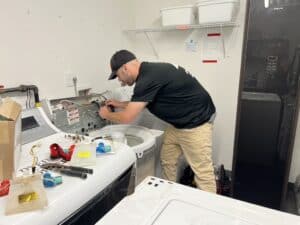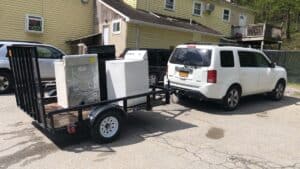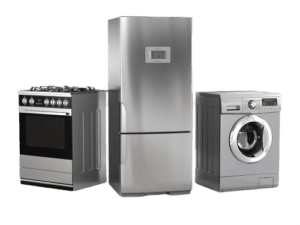A leaking refrigerator can be more than just a kitchen nuisance, it can signal underlying issues that threaten your appliance’s efficiency and even cause damage to your kitchen floor. Understanding the various causes of refrigerator leaks allows you to address them promptly, ensuring your appliance continues to run smoothly and avoiding potentially costly water damage. Here are some common reasons why refrigerators might leak and what you can do about it.
1. Clogged Defrost Drain
One of the most common causes of refrigerator leaks is a clogged defrost drain. This part of your fridge is responsible for directing melted water from the defrost cycle into the drain pan below. Over time, it can become obstructed with food particles or debris. When the drain is blocked, water can back up and leak out of the refrigerator. To fix this, you can try flushing the drain with warm water or using a small tool like a plumber’s snake to clear stubborn clogs.
2. Broken or Overflowing Drain Pan
The drain pan, located beneath your refrigerator, collects excess water so it can gradually evaporate. If the pan is cracked, damaged, or overflowing with water, it can lead to leaks. Regular inspections can prevent this issue, simply slide the pan out and check for damage or excess water accumulation, emptying it if necessary.
3. Improper Water Filter Installation:
If your refrigerator features a water filter, ensure it is installed correctly and is compatible with your model. An improperly fitted or damaged filter can lead to water leaks. Always use manufacturer-recommended filters and check for leaks after replacement by running the water dispenser.
4. Damaged Door Seals:
When door seals are damaged or no longer create a tight seal, warm air can enter, causing excess moisture and leading to leaks. Inspect seals for tears or gaps and replace them if necessary to ensure proper closure and cooling efficiency.
5. Water Inlet Valve Malfunction:
The water inlet valve supplies your fridge with water and can sometimes leak if connections are loose or if there’s cracking in the valve. Check the tubing and valve for signs of damage and replace any defective parts to prevent leaks.
6. Ice Maker Leakage:
A faulty ice maker installation or malfunction can also lead to leaks. Ensure that the water lines and connections are intact and secure. If your ice maker isn’t functioning properly, inspect it for any visible issues and consider a replacement if necessary.
What to Do Next?
Start by methodically checking each component as described above. In many cases, the issue can be resolved through simple inspections and replacements of faulty parts. However, if you’re unsure or uncomfortable working with electrical components or gas lines, it’s always wise to contact a professional appliance repair service like Hudson Appliance Repair to assess and fix the situation safely and effectively.
By understanding these potential problems, you can troubleshoot your oven more effectively and enjoy the convenience of a fully functional appliance. Don’t hesitate to reach out for expert help, we’re here to make cooking easier and safer for you!
